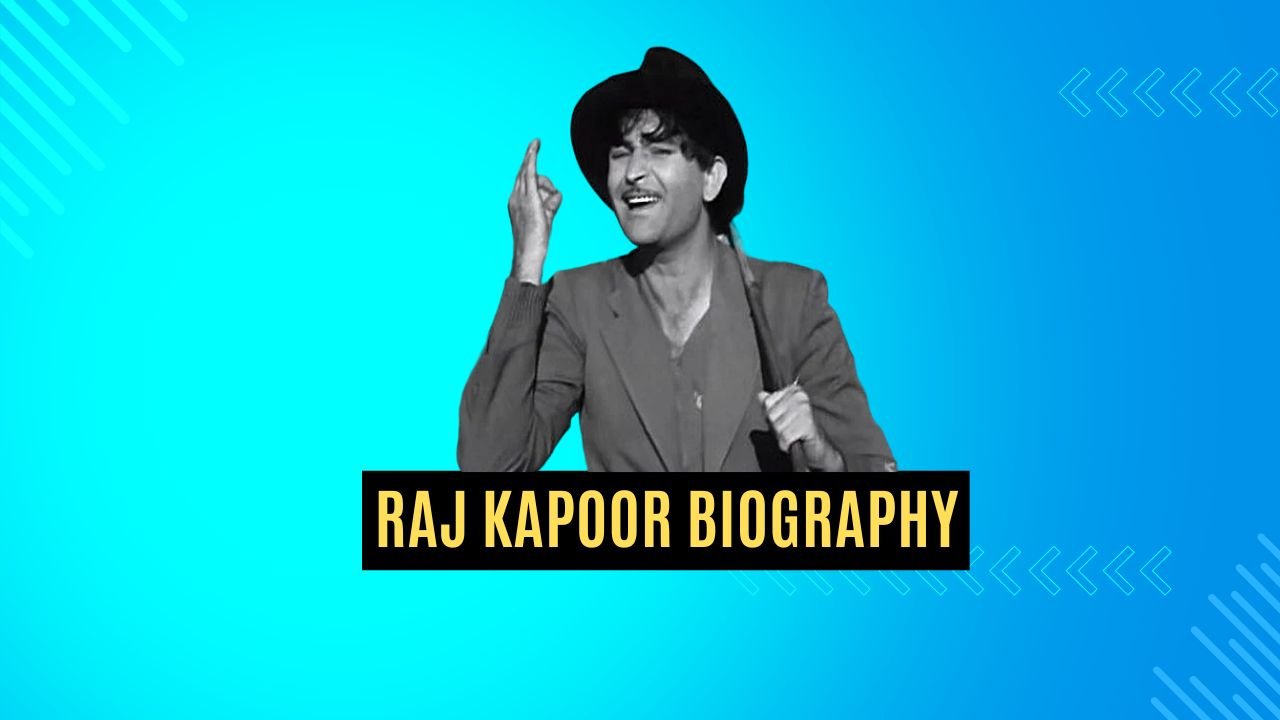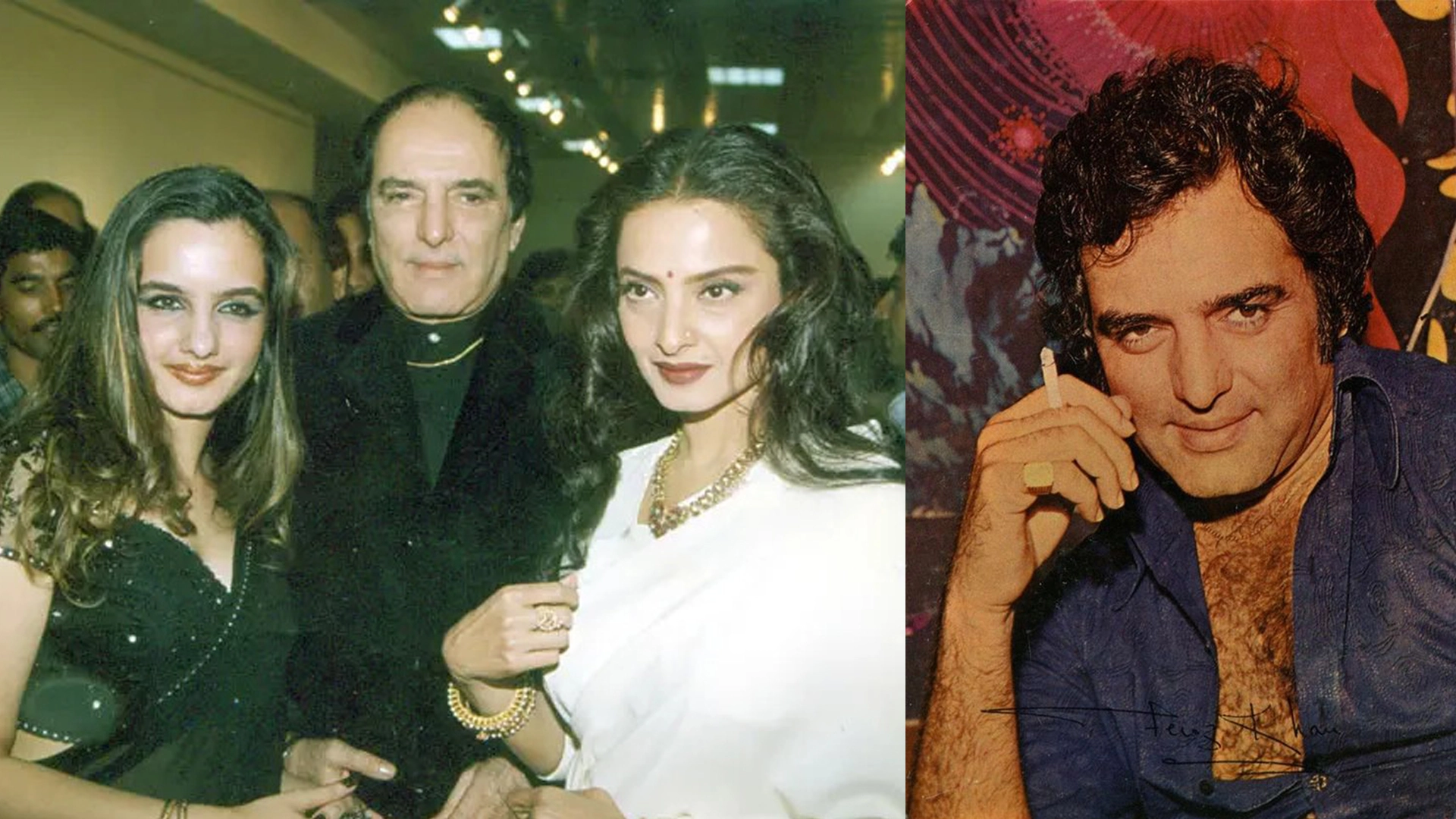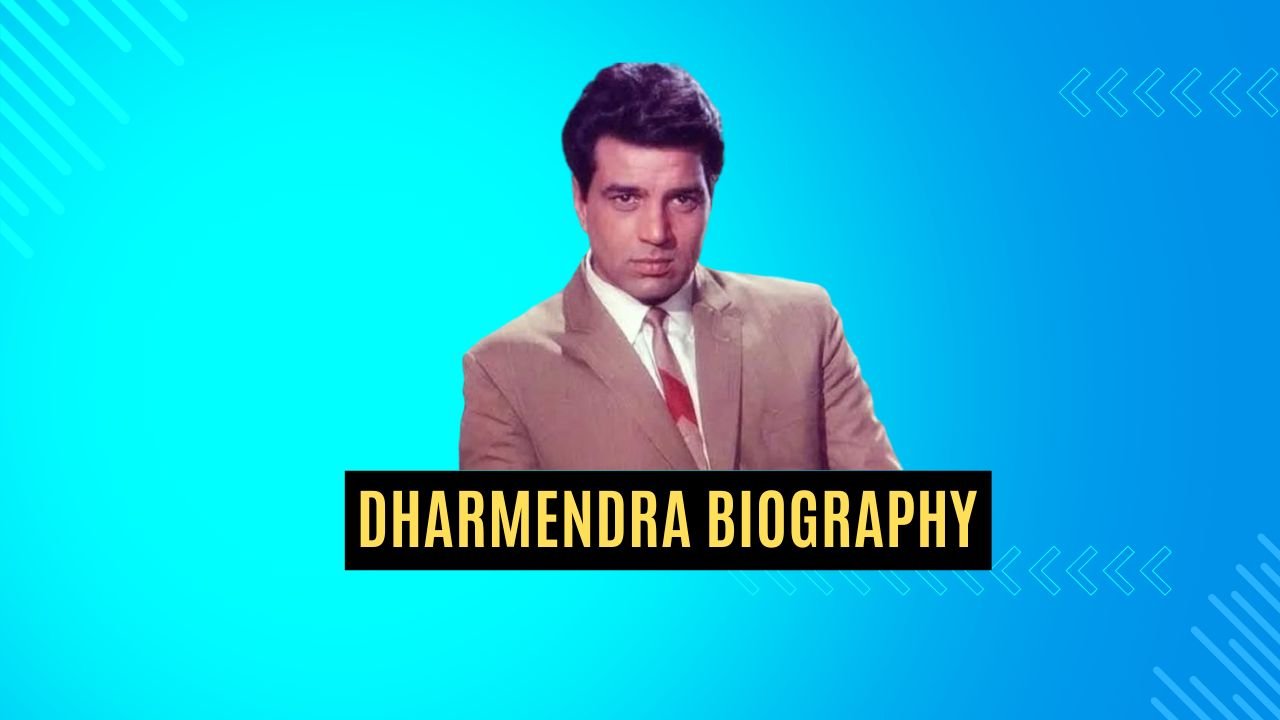Raj Kapoor Biography: Raj Kapoor, the legendary Bollywood actor and filmmaker, is often referred to as the “Showman of Indian Cinema.” His illustrious career spanned over five decades, during which he left an indelible mark on the Indian film industry and became an icon known and celebrated worldwide. Kapoor’s contributions to cinema, both as an actor and a filmmaker, were transformative, and his legacy continues to influence generations of actors and directors. This biography aims to delve into the life and career of Raj Kapoor, tracing his journey from a young boy born into a renowned film family to a global superstar and an acclaimed filmmaker.
Raj Kapoor Biography
Early Life and Family Background
Raj Kapoor was born on December 14, 1924, in the city of Peshawar, which was then a part of British India and is now in Pakistan. He was the eldest of five children born to Prithviraj Kapoor and Ramsarni Devi Kapoor. The Kapoor family had a rich theatrical tradition, and Prithviraj Kapoor, Raj’s father, was a celebrated actor and the founder of the iconic Prithvi Theatre. It was within this creative and artistic environment that Raj Kapoor’s love for cinema and acting took root.
Raj’s childhood was spent in a world steeped in the performing arts. He grew up watching his father and other theater artists, absorbing their craft and passion for storytelling. His early education was at Colonel Brown Cambridge School in Dehradun, where he received a well-rounded education, including exposure to drama and music.
Entry into Films
Raj Kapoor’s entry into the world of cinema was almost inevitable, given his family’s background and his own inclination towards acting. In 1935, at the tender age of ten, he made his acting debut in the film “Inquilab,” directed by his father, Prithviraj Kapoor. Though his role was small, it marked the beginning of a lifelong association with the film industry.
His next significant appearance was in “Neel Kamal” (1947), where he played the lead role opposite the talented Madhubala. The film’s success established him as a promising young actor in the industry. Raj Kapoor’s boyish charm, expressive eyes, and natural acting style quickly won over audiences and filmmakers alike.
The Formation of RK Films
In 1948, Raj Kapoor, along with his loyal friend and music director Shankar-Jaikishan, embarked on a journey that would change the course of Indian cinema forever. They founded their own production company, RK Films, and released their first film, “Aag” (1948), which Raj Kapoor not only acted in but also directed. Though the film did not fare well at the box office, it laid the foundation for what would become one of the most successful film banners in Indian cinema history.
The Rise to Stardom
Raj Kapoor’s rise to stardom was meteoric. In the late 1940s and early 1950s, he appeared in a series of hit films that established him as one of the leading actors of his generation. Some of his notable films from this period include “Barsaat” (1949), “Chhalia” (1953), and “Shree 420” (1955). These films not only showcased his acting prowess but also his skills as a producer and director.
It was during this time that Raj Kapoor’s iconic persona, the “Tramp of Bollywood,” emerged. His character in “Shree 420,” a lovable but morally conflicted man navigating the complexities of urban life, became an enduring symbol of the common man’s struggles in post-independence India.
The Nargis-Raj Kapoor Saga
One of the most defining aspects of Raj Kapoor’s career and personal life was his association with the iconic actress Nargis. Their on-screen chemistry was nothing short of magical, and it translated into a deep off-screen bond as well. Nargis and Raj Kapoor starred together in several classic films, including “Chhalia,” “Barsaat,” and “Shree 420.”
Their real-life romance became the stuff of legends, and despite both being married to other people, their love for each other was an open secret in the film industry. Their relationship faced its share of challenges and controversies, but it remained a defining aspect of both their lives.
Directorial Prowess
While Raj Kapoor had established himself as a leading actor, he was not content with just being in front of the camera. He was determined to make his mark as a director as well. In 1951, he directed his first film, “Awaara,” which went on to become a massive success. The film’s depiction of the father-son relationship and the struggle between good and evil resonated deeply with audiences.
Raj Kapoor’s directorial ventures, including “Shree 420” and “Chhalia,” were known for their social themes and memorable songs. He had an innate ability to blend entertainment with social messages, making his films both commercially successful and socially relevant.
Mera Naam Joker and Setbacks
In the 1970s, Raj Kapoor embarked on an ambitious project that would become one of the most significant films of his career – “Mera Naam Joker” (1970). This semi-autobiographical film was a reflection of Kapoor’s own journey in the film industry, with him playing the role of a clown who brought joy to others but hid his own pain.
While “Mera Naam Joker” received critical acclaim for its artistic merit, it was a commercial failure, causing financial strain on Raj Kapoor’s production company, RK Films. Despite the setback, Kapoor continued to make films, but the 1970s and 1980s saw a decline in his box office fortunes.
Legacy and Impact
Despite the commercial setbacks, Raj Kapoor’s influence on Indian cinema remained unparalleled. His body of work, characterized by timeless classics and memorable performances, continues to be celebrated by audiences and filmmakers alike. His impact extended beyond Indian shores, with international recognition and admiration.
Raj Kapoor was also known for introducing and nurturing talent in the film industry. He launched the careers of several actors and filmmakers, including Rishi Kapoor, Randhir Kapoor, and Prakash Mehra. His commitment to the growth of the film industry was evident in his efforts to modernize and professionalize film production.
Personal Life and Philanthropy
In his personal life, Raj Kapoor was a complex figure. His relationships with Nargis and subsequent marriages added to his public persona, but he was also known for his warmth, generosity, and philanthropic efforts. He actively supported various charitable causes and was involved in humanitarian work.
Raj Kapoor’s family life was marked by his deep attachment to his children – Rishi Kapoor, Randhir Kapoor, and Rajiv Kapoor, all of whom went on to have successful careers in the film industry. His grandchildren, including Ranbir Kapoor, have continued the Kapoor family’s legacy in Bollywood.
Final Years and Passing
In the final years of his life, Raj Kapoor’s health began to deteriorate. He had faced health issues related to his heart and lungs, which were exacerbated by his long-time smoking habit. Despite his declining health, he continued to be involved in the film industry, both as an actor and a filmmaker.
Tragically, on June 2, 1988, Raj Kapoor passed away due to complications related to asthma and other health issues. His death marked the end of an era in Indian cinema, leaving a void that has never been completely filled. Thousands of fans, friends, and colleagues mourned his loss, and his funeral was attended by luminaries from the film world and beyond.
Conclusion
Raj Kapoor’s life and career were a testament to his passion for cinema and his unwavering dedication to the art of storytelling. He was a multifaceted artist who excelled as an actor, director, and producer, leaving behind a rich legacy of films that continue to be celebrated and cherished by audiences worldwide. His ability to connect with the common man, his social conscience, and his commitment to quality cinema made him a true showman of Indian cinema.
Raj Kapoor’s influence extends beyond the boundaries of time and geography. He remains an inspiration for generations of actors and filmmakers, and his films continue to be a source of joy and reflection. His story is a reminder that talent, hard work, and an unwavering passion for one’s craft can lead to greatness and leave an indelible mark on the world of cinema. Raj Kapoor will forever be remembered as an icon of Indian cinema and a true legend of Bollywood.



